Selected Plants of Navajo Rangelands
Death camas
Yiíłtsíniitsoh
(a.k.a. Foothill deathcamas)
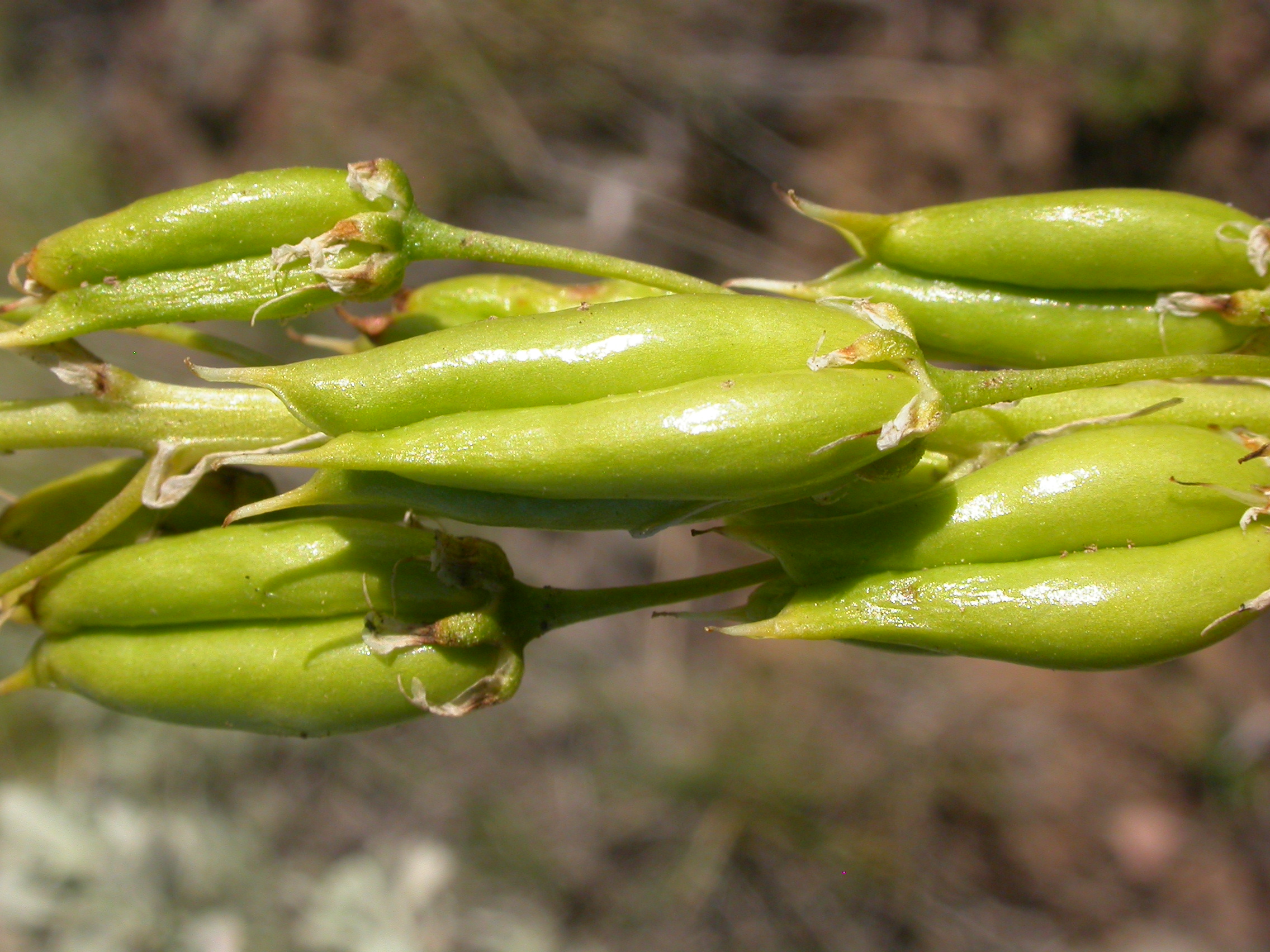
Death camas is a forb growing 1 to 2 feet tall, with an underground scaly bulb. Growth begins very early in the spring, before most other plants. Death camas is most abundant in foothill areas. Reproduction is by seed.
Flowers are white white to yellowish, with orange stamens that give them a soft, lacy quality. They appear in early summer. Rough brown seeds are formed in a three-celled capsule, which is especially poisonous. Plants have five or six basal, thickened, V-creased leaves with a grasslike appearance.
Death camas is found from the semidesert to mountain climatic zones in a wide range of soils. All parts of this plant contain a poisonous alkaloid at all growth stages. Sheep and cattle often eat death camas in early spring before other plants start producing forage. Sheep are the most commonly poisoned, but cattle deaths have also been reported. Respiratory problems occur in sheep after eating 1/2 to 2 pounds of death camas. Signs of poisoning include salivation, nausea and vomiting, weakness, coma, and death within a few hours to two days. Pastures containing death camas should not be grazed until late spring when other forage is available. The bulbs, which can be mistaken for onions or sego lily, can cause severe illness in humans.
*Courtesy of Utah State University Range Plants of Utah.
Species of death camas on the Navajo Endangered Species List:
- Zigadenus vaginatus, alcove death camas (Group 3 Navajo Endangered Species List))
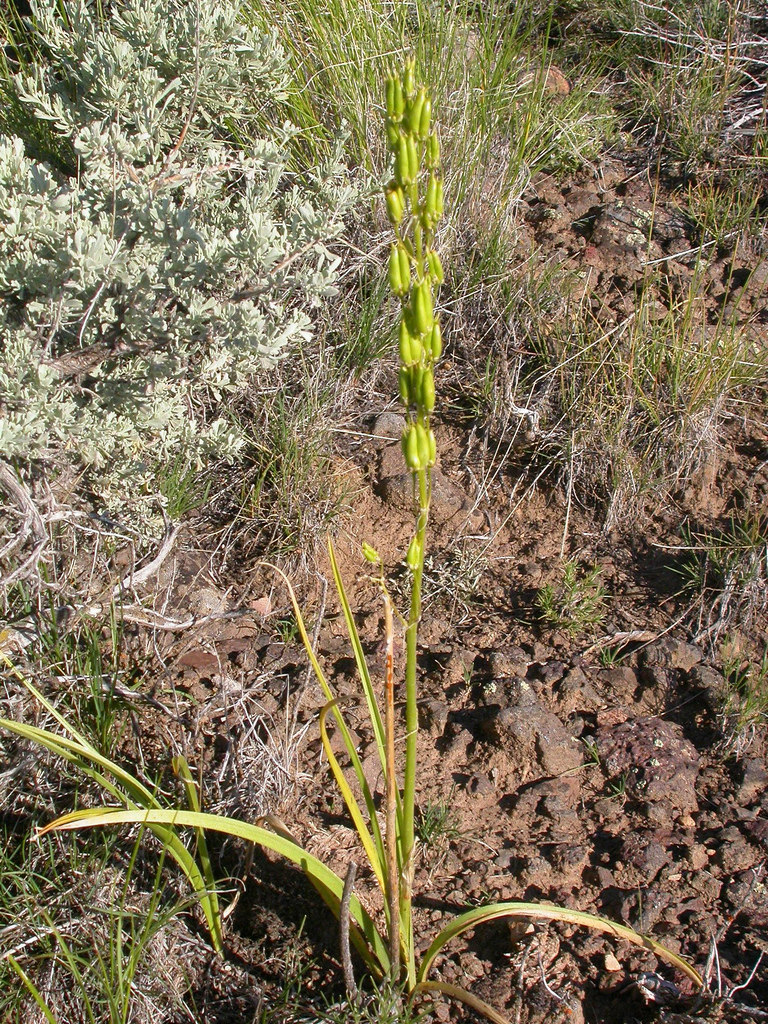
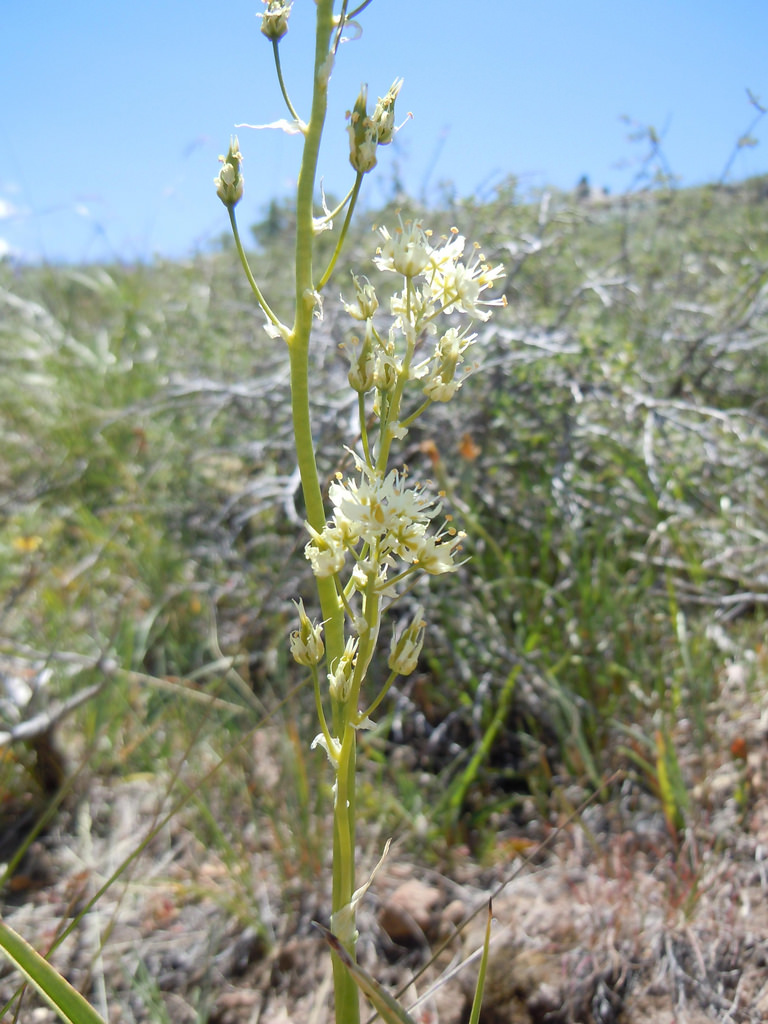
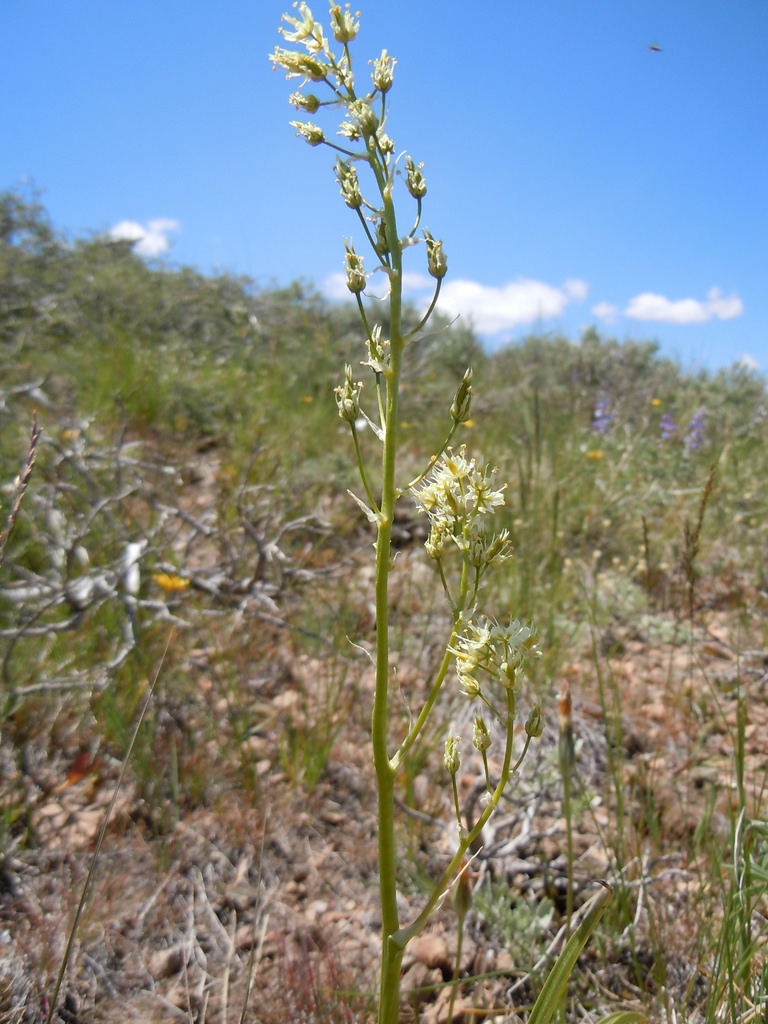
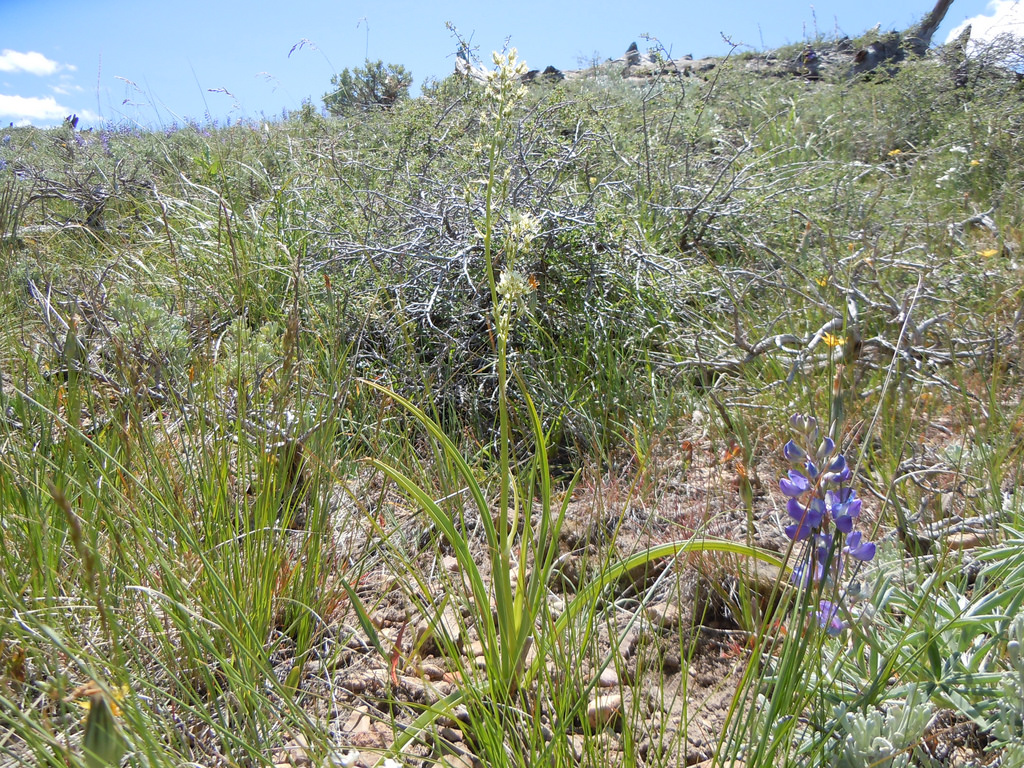
Copyright 2018 New Mexico State University. Individual photographers retain all rights to their images. Partially funded by the Western Sustainable Agriculture Research and Education Program (westernsare.org; 435.797.2257), project EW15-023. Programs and projects supported by Western SARE are equally open to all people. NMSU is an equal opportunity/affirmative action educator and employer.
NMSU does not discriminate on the basis of age, ancestry, color, disability, gender identity, genetic information, national origin, race, religion, retaliation, serious medical condition, sex (including pregnancy), sexual orientation, spousal affiliation or protected veteran status in its programs and activities as required by equal opportunity/affirmative action regulations and laws and university policy and rules. For more information please read the NMSU Notice of Non-discrimination.

